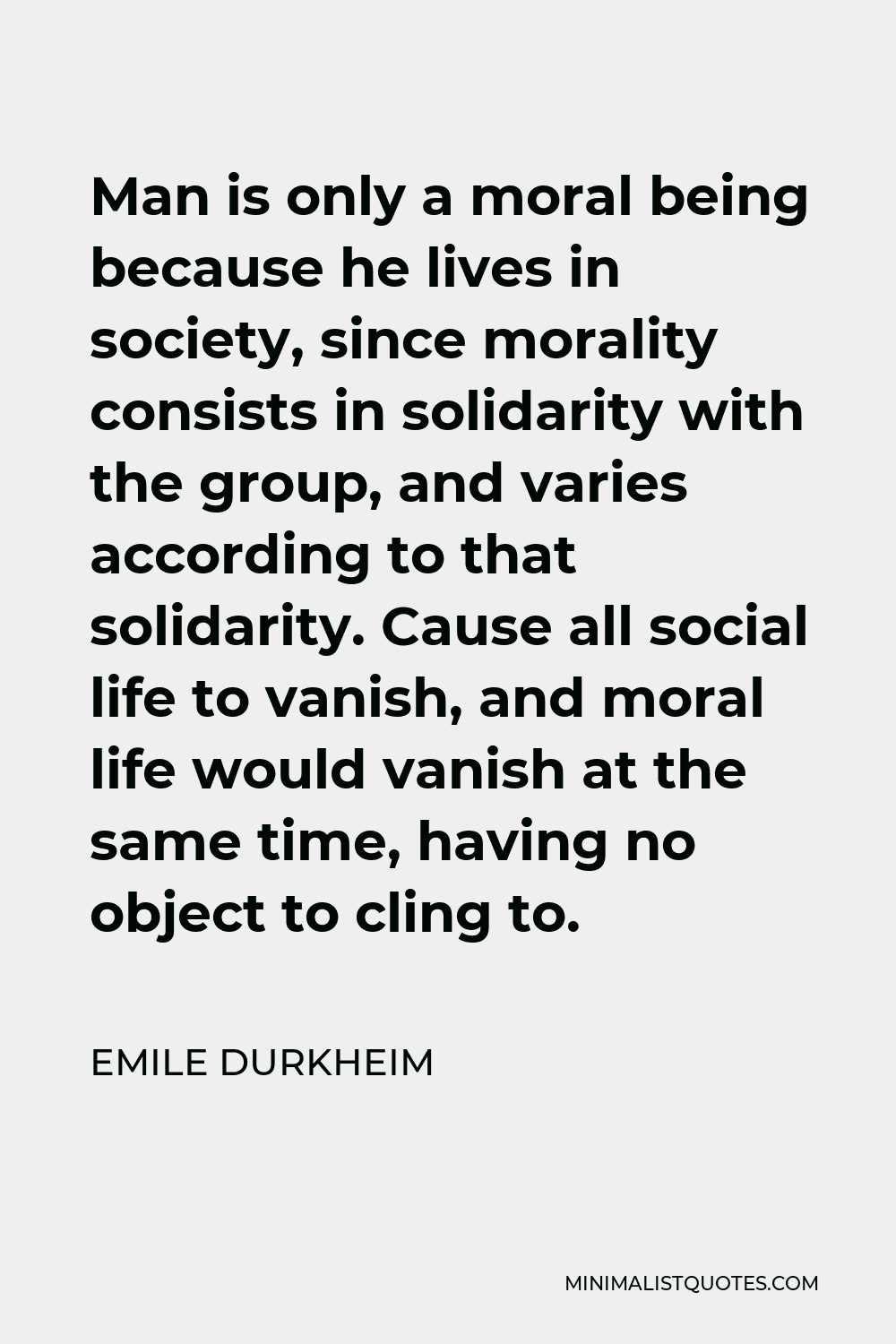It is science, and not religion, which has taught men that things are complex and difficult to understand.
EMILE DURKHEIMMan is only a moral being because he lives in society, since morality consists in solidarity with the group, and varies according to that solidarity. Cause all social life to vanish, and moral life would vanish at the same time, having no object to cling to.
More Emile Durkheim Quotes
-





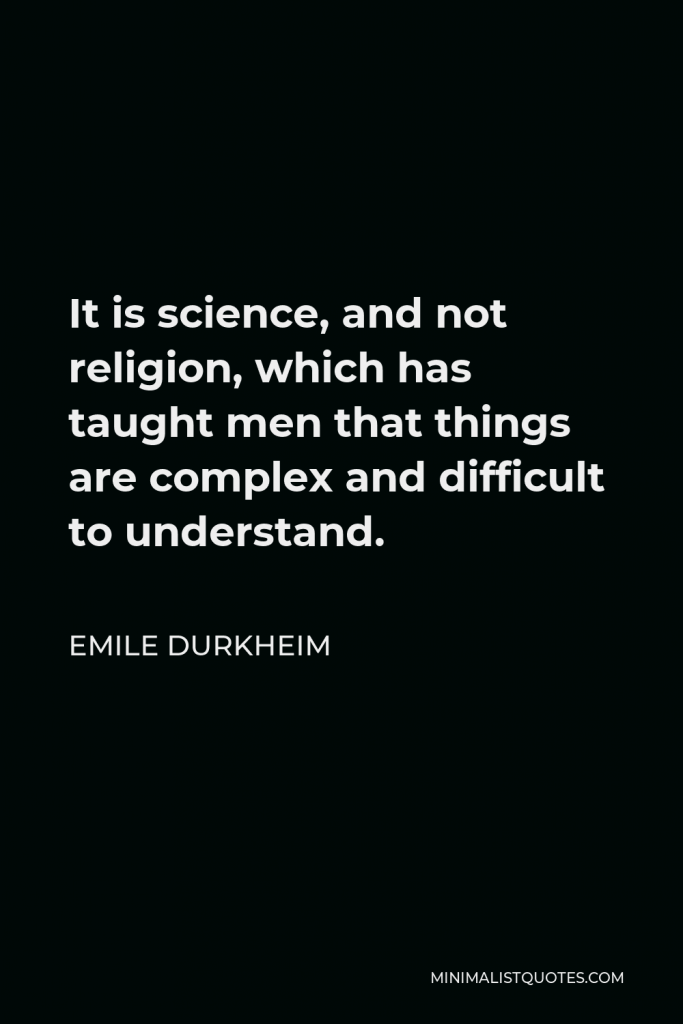

-







Man is only a moral being because he lives in society, since morality consists in solidarity with the group, and varies according to that solidarity. Cause all social life to vanish, and moral life would vanish at the same time, having no object to cling to.
EMILE DURKHEIM -







It is only by historical analysis that we can discover what makes up man, since it is only in the course of history that he is formed.
EMILE DURKHEIM -





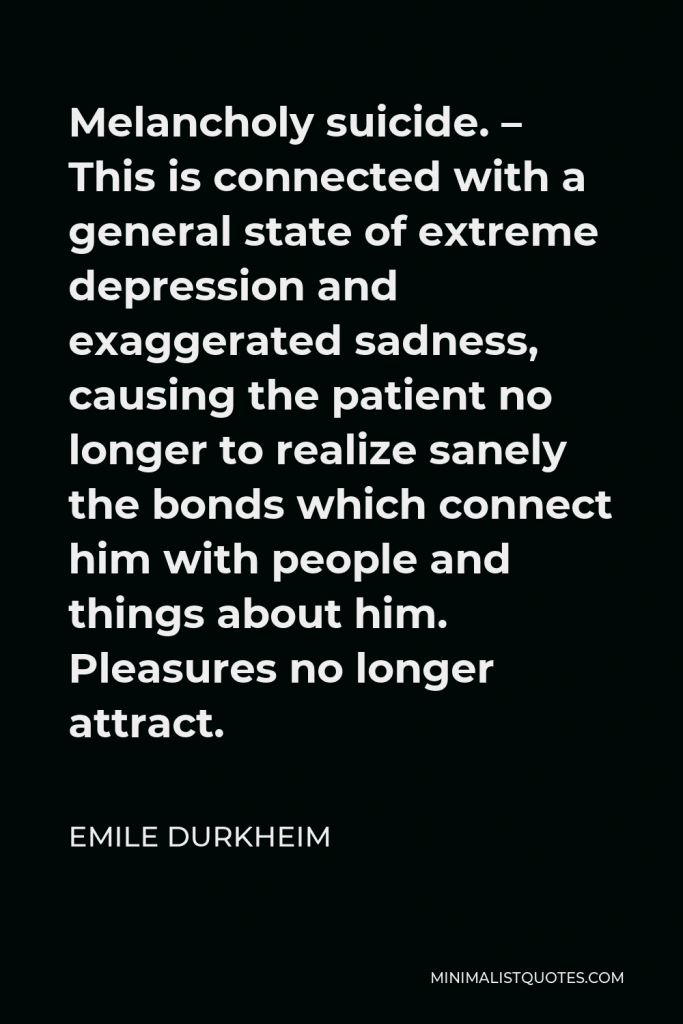

Melancholy suicide. – This is connected with a general state of extreme depression and exaggerated sadness, causing the patient no longer to realize sanely the bonds which connect him with people and things about him. Pleasures no longer attract.
EMILE DURKHEIM -





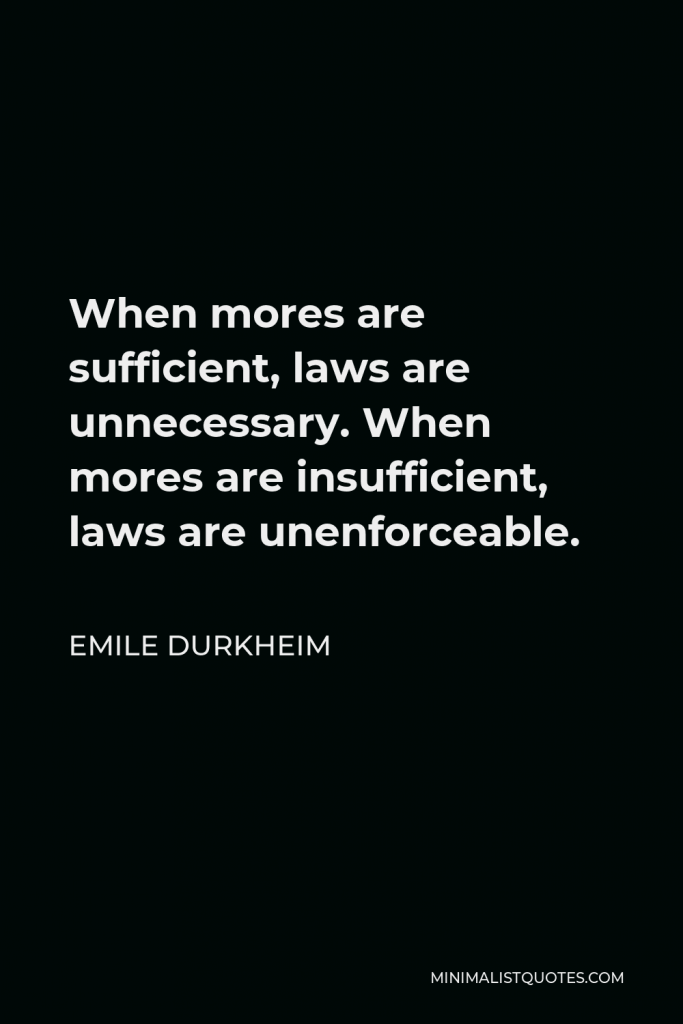

When mores are sufficient, laws are unnecessary. When mores are insufficient, laws are unenforceable.
EMILE DURKHEIM -







The term suicide is applied to all cases of death resulting directly or indirectly from a positive or negative act of the victim himself, which he knows will produce this result
EMILE DURKHEIM -





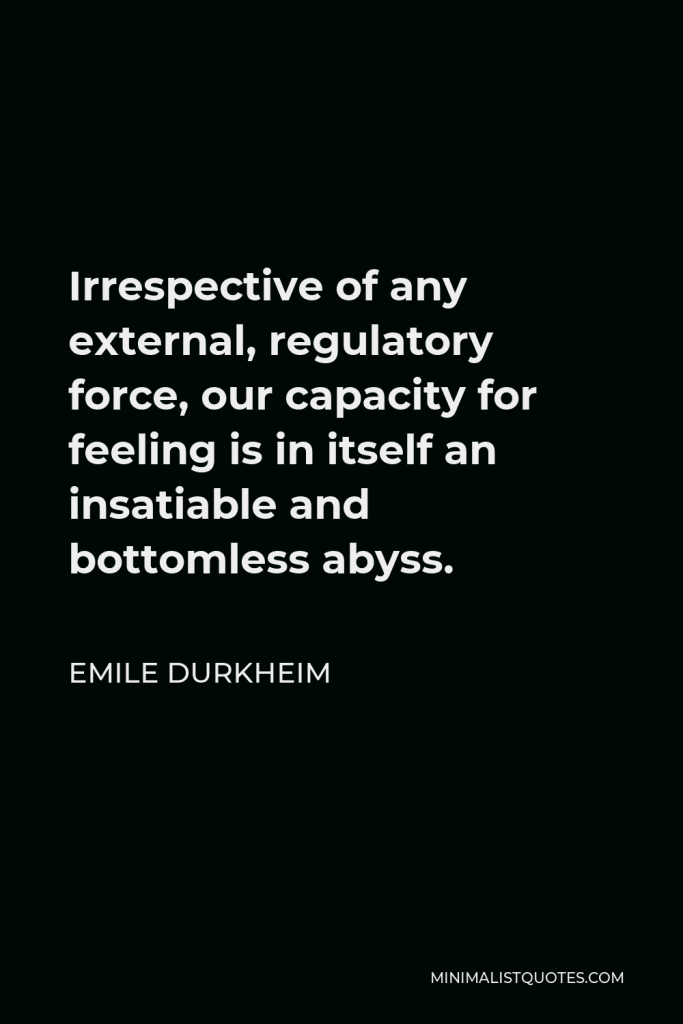

Irrespective of any external, regulatory force, our capacity for feeling is in itself an insatiable and bottomless abyss.
EMILE DURKHEIM -







I can be free only to the extent that others are forbidden to profit from their physical, economic, or other superiority to the detriment of my liberty.
EMILE DURKHEIM -





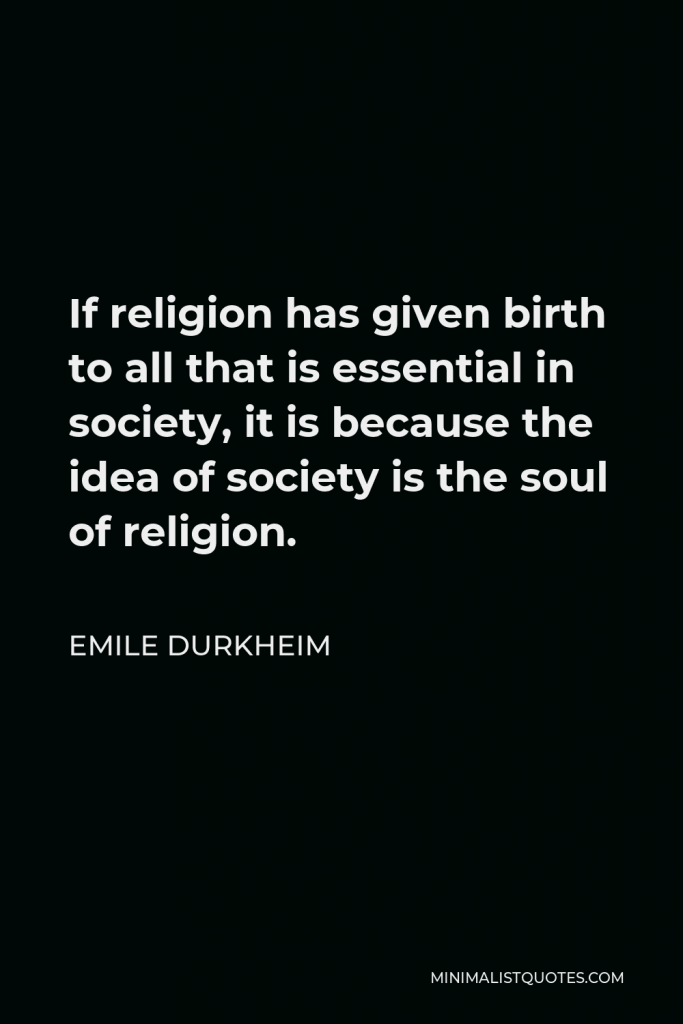

If religion has given birth to all that is essential in society, it is because the idea of society is the soul of religion.
EMILE DURKHEIM -





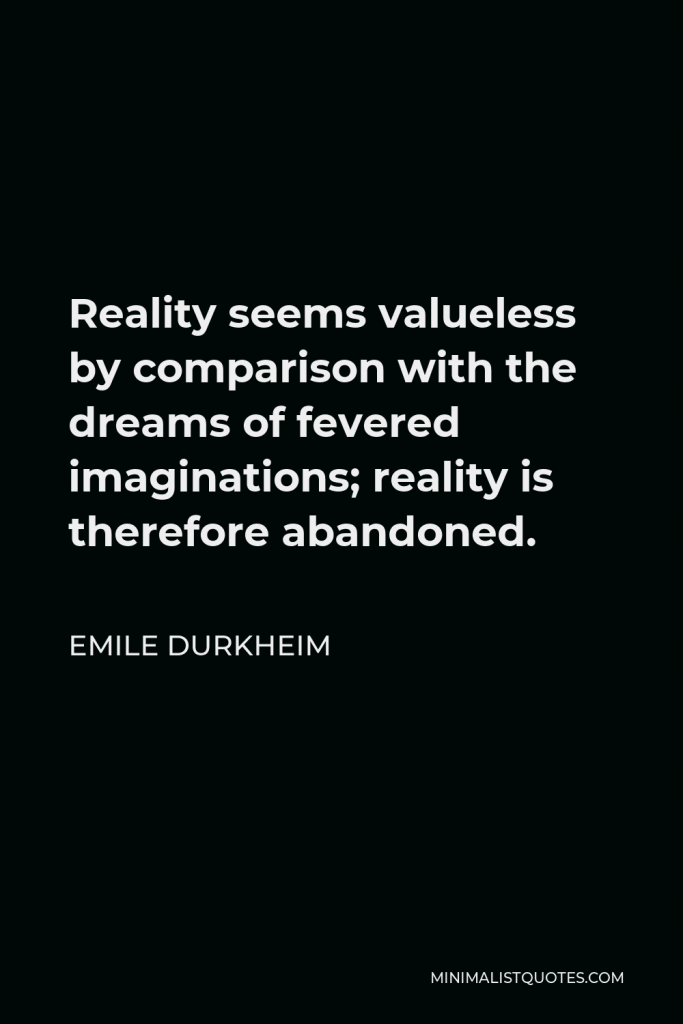

Reality seems valueless by comparison with the dreams of fevered imaginations; reality is therefore abandoned.
EMILE DURKHEIM -





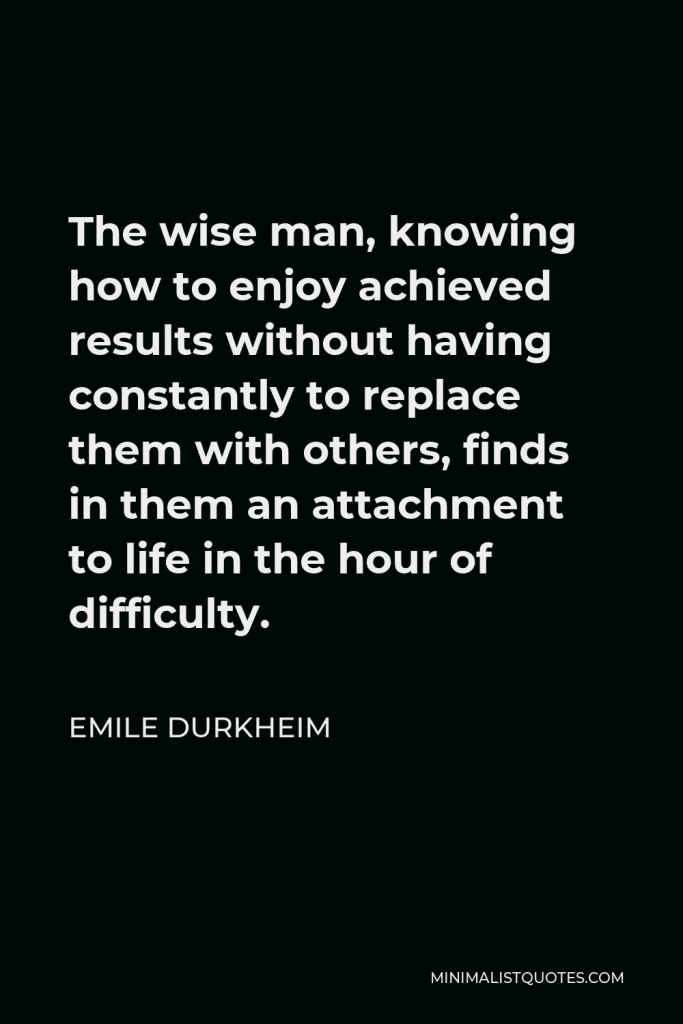

The wise man, knowing how to enjoy achieved results without having constantly to replace them with others, finds in them an attachment to life in the hour of difficulty.
EMILE DURKHEIM -





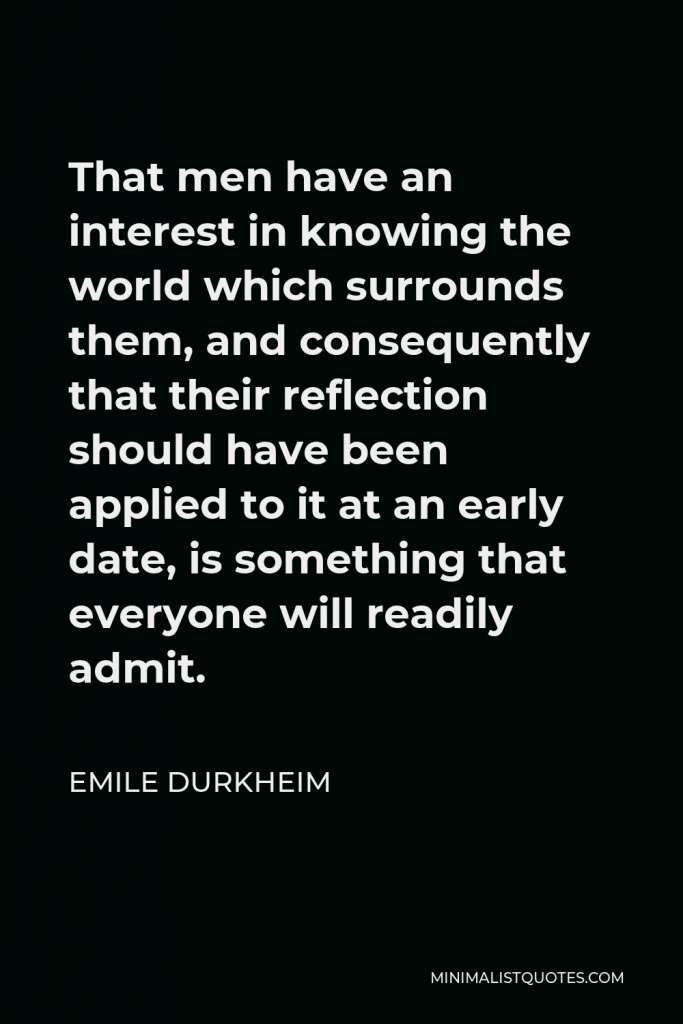

That men have an interest in knowing the world which surrounds them, and consequently that their reflection should have been applied to it at an early date, is something that everyone will readily admit.
EMILE DURKHEIM -





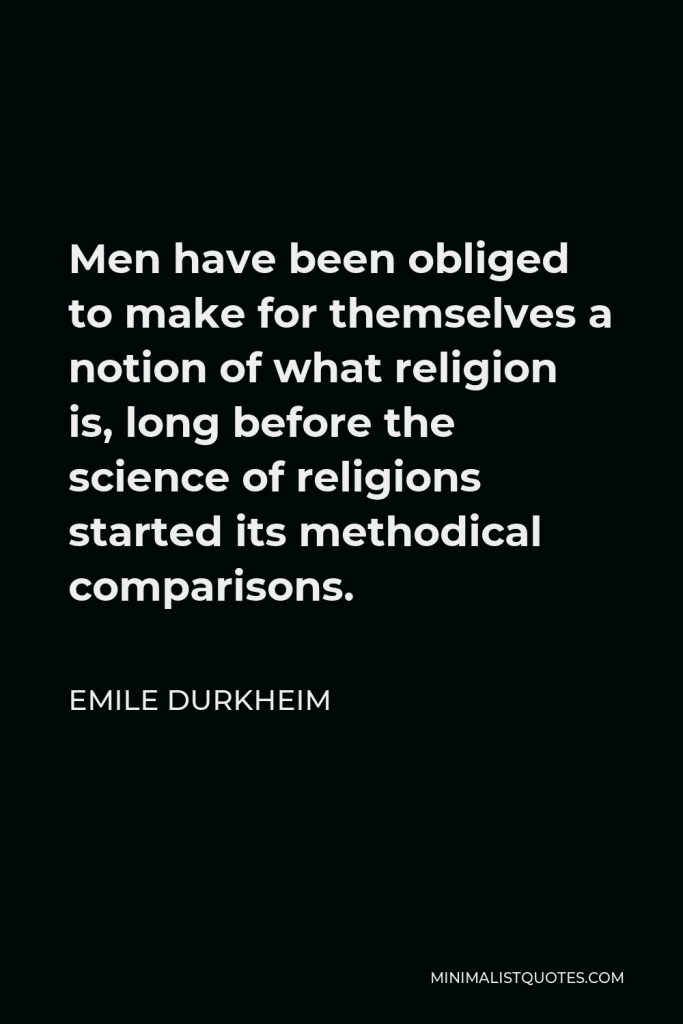

Men have been obliged to make for themselves a notion of what religion is, long before the science of religions started its methodical comparisons.
EMILE DURKHEIM -





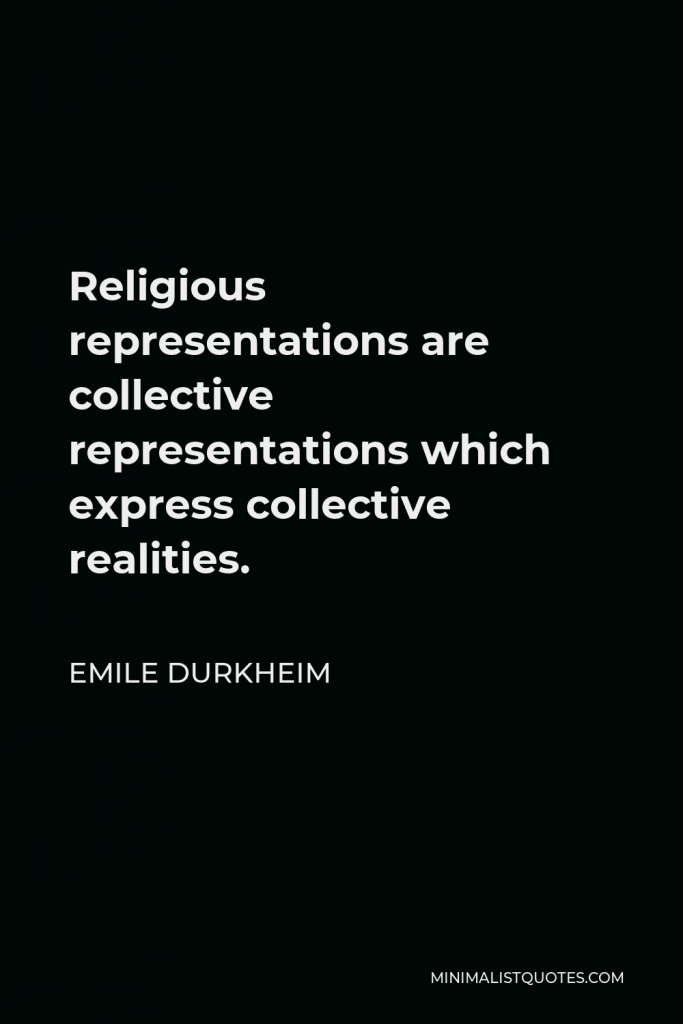

Religious representations are collective representations which express collective realities.
EMILE DURKHEIM -





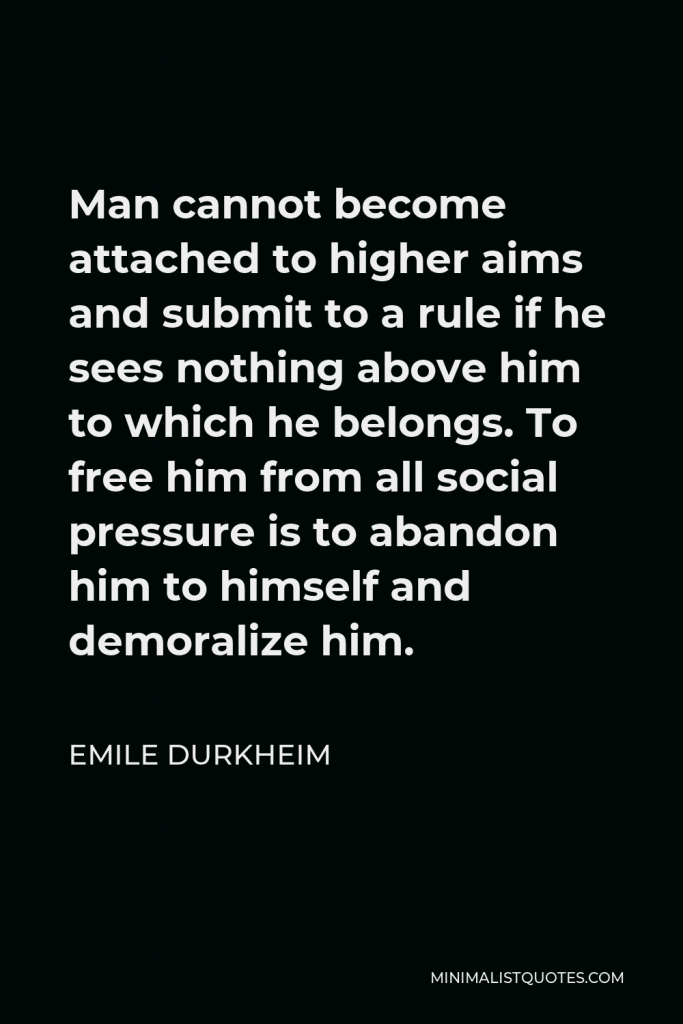

Man cannot become attached to higher aims and submit to a rule if he sees nothing above him to which he belongs. To free him from all social pressure is to abandon him to himself and demoralize him.
EMILE DURKHEIM -







When man discovered the mirror, he began to lose his soul.
EMILE DURKHEIM





